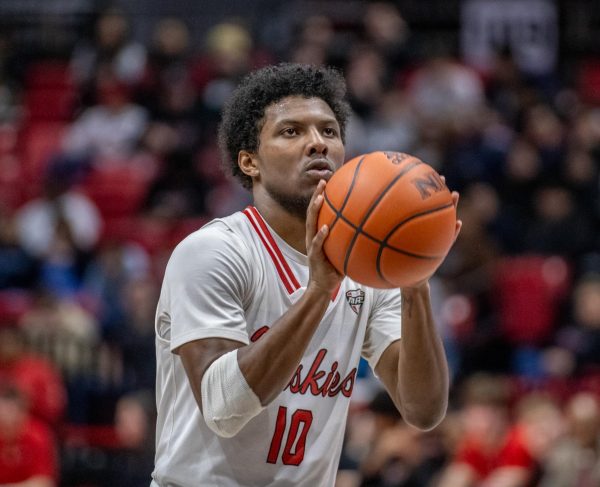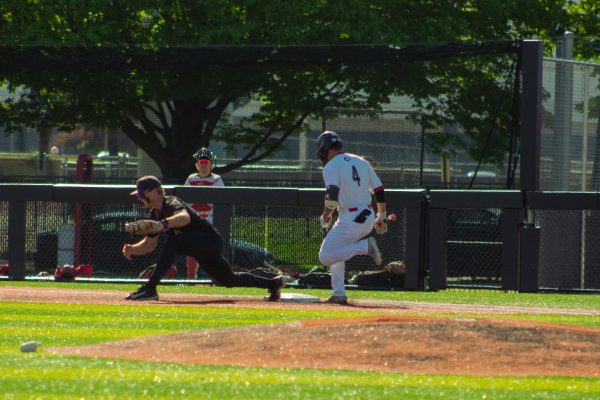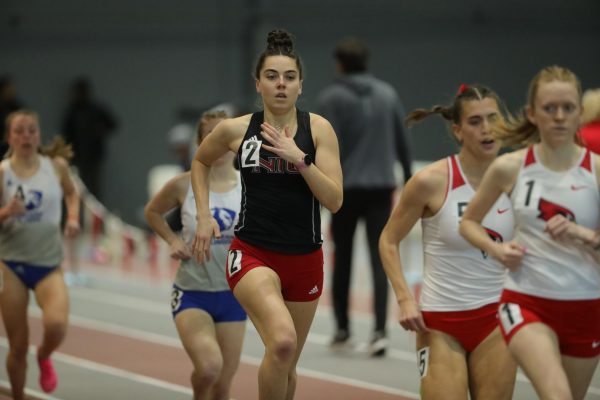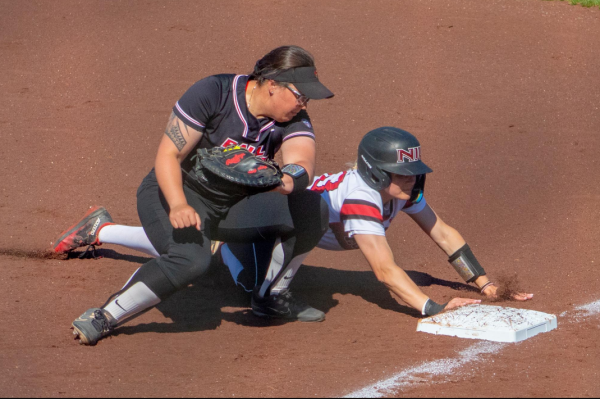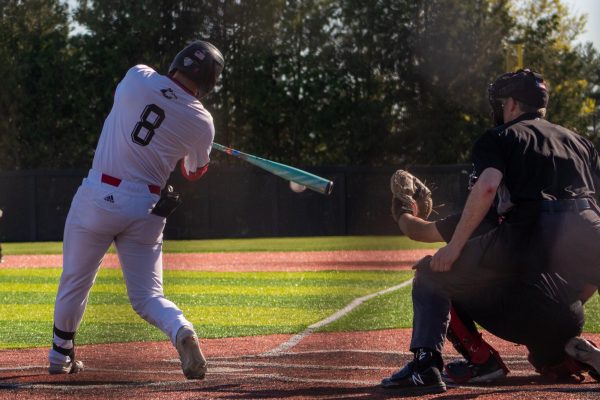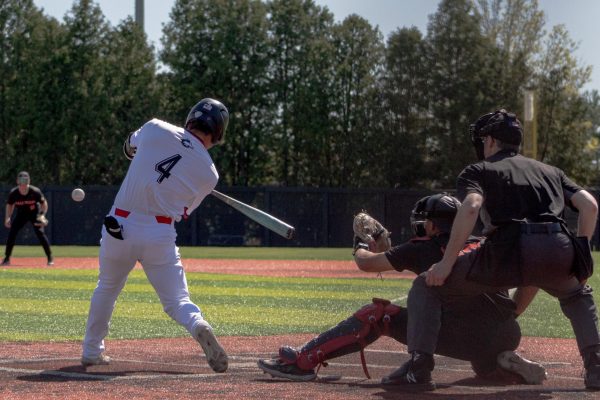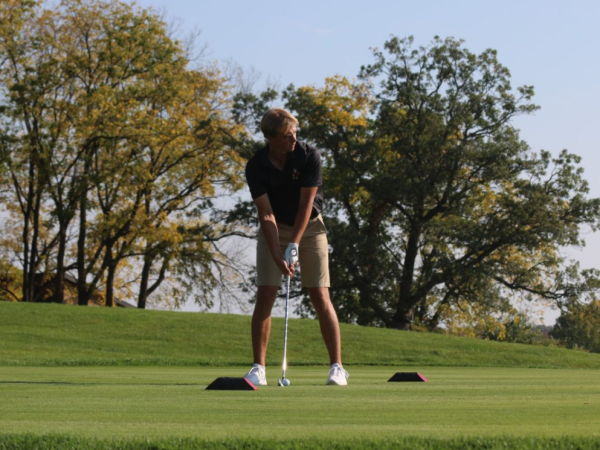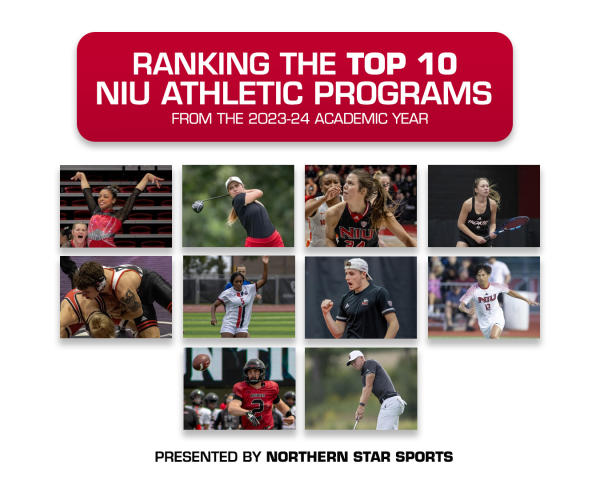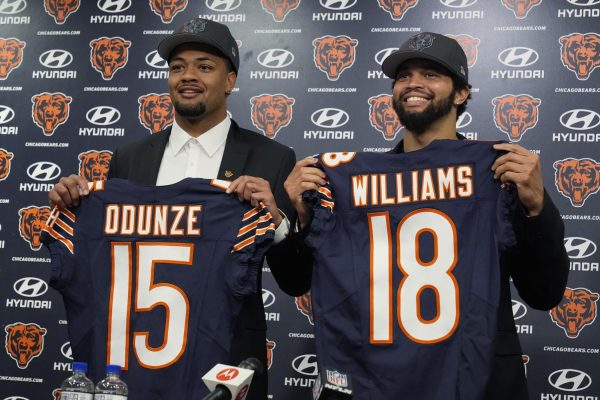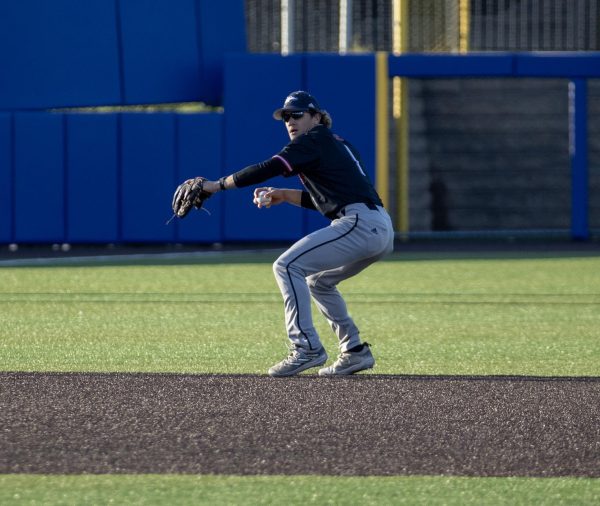Roy traveled long road to Fame
August 9, 1989
Willy Roy has come a long way since the days he and his brother first played soccer in a chicken pen in East Germany.
So when the third-year NIU soccer coach is inducted into the United States Soccer Federation Hall of Fame this weekend, he undoubtedly will reflect upon the 46-year journey that has taken him from war-torn Germany to soccer “immortality” in the U.S.
Roy, who will be enshrined in the national hall of fame Friday in Colorado Springs, still treasures the moment in 1956 when his family got its first glimpse of the United States.
“I remember landing in New York and seeing the Empire State Building and the Statue of Liberty—those were some of the great highlights, because you heard about them in school,” says Roy, who was 13 when his family deserted a broken farm in East Germany.
The 46-year-old Roy has yet to write an induction speech, but when he does, he is sure to pay tribute to two of his driving forces—his father and his country.
Roy’s father, who died several years ago, was a German soldier fighting against the U.S. in World War II when Willy was born. “He was captured by them,” says Roy in a strong German accent, “and he was treated so well by them that he decided this would be a great place for us to immigrate to.
“I tell people all the time now that he made the right decision and we came on the right boat—we came to the right country.”
The year they came to the U.S., the Roys settled in Chicago and Willy has been there ever since. Roy had played “sandlot” soccer in Germany with his older brother Eric, but he admits they were limited by playing conditions that were less than ideal.
“We used to lock up the chickens in the chicken coop so we’d have a fenced-in area that we could play in,” says Roy with a grin. “Our parents suddenly put a stop to that because they found out that our chickens were not laying eggs and they found out that the culprits were Eric and I.”
Once in Chicago, Roy saw no further limits to his soccer career. He and Eric joined an amateur team, the Wanderers, and Willy soon developed into an outstanding center. “I was an aggressive type of player,” says the solidly built Roy. “I was born with a knack for scoring goals. That is something that people cannot teach.”
Roy later played semi-professional ball for the Hansa Club before joining his first pro team—the Chicago Spurs—in 1967. But his biggest thrill came two years earlier in 1965, when he was asked to play for the U.S. National Team. Roy says that honor was special because he was able to play for the country he had grown to love. “The emotional feeling you get—the goosebumps you get—by representing your country, that means an awful lot,” he says.
He played on the national team from 1965-73 and during that time participated in three World Cup qualification rounds (1966, 1970 and 1974).
Roy’s career hit a crossroad in 1975 when he suffered a broken leg while playing for the Chicago Sting. His playing days came to a close with that injury, but he seems comforted by the fact that he did score a goal on the career-ending play.
Coaching became Roy’s new passion, and he led the Chicago Sting to a pair of NASL titles before coming to NIU in 1987. At NIU, he is trying to help his three sons—Willy Jr., Karsten and Marcus—excel at the game he loves so much.
Roy knows his strong career as a player and coach have led to this weekend’s honor, but he explains the induction another way: “My mom wrote in on a write-in campaign,” he says jokingly.
Already famous in DeKalb for his humorous impromptu speeches at Huskie Club Luncheons, Roy is preparing for a speech of a different kind in Colorado Springs, where the soccer federation delegates are meeting. Following the ceremony Roy will forever be a member of soccer’s elite at the Hall of Fame in Oneida, New York. That honor is something he does not joke about.
“To me,” he says, “it’s something special because other people recognize some of the things that you have accomplished or done for the sport.”
And it all started in a chicken pen in East Germany.



